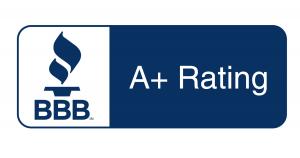Pittsburgh Drug Charges Attorneys
Drugs have been and will continue to be a hot-button issue here in Pennsylvania. It is for this reason that state and federal prosecutors are quick to act in drug crimes cases. You must ensure you act just as quickly to obtain a skilled drug crimes defense lawyer to build the strongest possible defense on your behalf.
With more than 45 years of combined legal experience, our team at DRK Lawyers knows how to tackle all drug crimes involving:
- Marijuana
- Synthetic Marijuana
- Cocaine
- Heroine
- Ecstasy
- Methamphetamines
- Prescription drugs
- Other Controlled Substances
- Drug paraphernalia
- Drug Possession
We Have the Experience to Fight Your State and Federal Drug Charges
In addition to our many years of hands-on courtroom experience, each of our lawyers also has experience working as a prosecutor. This means we know the local and state judges and prosecutors, including what they look for in a case and what evidence the court requires for a conviction.
If your drug crime falls under federal court jurisdiction, you could find yourself facing higher stakes than you can handle. For instance, potential consequences of federal drug charges conviction include mandatory minimum prison sentences, thousands of dollars in fines, and the inability to obtain employment or loans. Turn to our team for the strong criminal defense representation you need when facing charges for:
- Drug cultivation
- Drug trafficking
- Drug manufacturing
- Forgery or fraud related to prescription drugs
Judicially Determined Mandatory Minimum Sentences for Drug Offenses No Longer Legal in PA
Supreme Court Rulings Impact Minimum Sentencing Laws
In 2000, the Supreme Court ruled in Apprendi v. New Jersey held that facts in a case which may augment a criminal defendant’s sentence, up to the maximum sentence allowed, are to be considered “elements” of the offenses in question. As such, these elements are required to be proven to a jury beyond a reasonable doubt.
For example, consider a felony criminal case involving the distribution of a controlled substance. If there is a ten year minimum sentence mandated by state statutes, with additional time to be added to the sentence dependant on the quantity of the drug, then it must be the jury and not the judge to declare a finding on the quantity in question prior to the increased maximum sentence being imposed.
Juries Must Establish Whether A Mandatory Minimum Should Apply
In 2013, the Supreme Court again ruled on the topic of mandatory minimum sentences. The High Court held that juries and not judges must determine whether or not minimum mandatory sentencing guidelines should apply in the case at hand. Due to the legal precedence established by this decision, some Pennsylvania counties such as such as Lycoming, Allegheny and Blair ceased imposing mandatory minimum sentences.
Evidence Relevant To Mandatory Minimums Must Be Proven Beyond A Reasonable Doubt
The case the High Court ruled on in 2013 involved a defendant who was convicted of possession with intent to deliver heroin. The defendant agreed to the weight of the heroin as offered into evidence by the state. In this manner, the weight of the heroin was determined by a preponderance of the evidence, not proof beyond a reasonable doubt.
Therefore, the Supreme Court ruled that it was not sufficient for the defendant to merely agree to the weight of the heroin offered by the state and as such, having failed to meet the standard of proof beyond a reasonable doubt, the consideration of the weight of the substance was wholly irrelevant to the case and sentencing guidelines. In other words, the mandatory minimum sentence could not be augmented by the weight determination because the weight determination had not been proven beyond a reasonable doubt.
Why This Is Important For Defendants
These rulings set a legal precedence for the standard that critical factual issues relating to a mandatory minimum or maximum sentence must be submitted to a jury for consideration. In such scenarios, the judge is not the proper authority to impose a mandatory sentence based on evidence wherein the facts that underly consideration of the mandatory minimum or maximum must be proved beyond a reasonable doubt. It is critical in such cases that any and all factors that rely upon such an evaluation in sentencing be submitted to review by a jury.
We Know What the Prosecution Must Prove
What’s more, as former assistant district attorneys, we know how to craft detailed defense strategies that get at the heart of the prosecution’s case. We will seek to weaken the prosecution’s arguments based on any holes or issues we see with:
- Probable cause: Did the officers have probable cause to search you, your home or your vehicle?
- Search and seizure: Did law enforcement follow all necessary search and seizure process requirements as required by Pennsylvania law?
- Chain of custody: Can the prosecution account for the location and safety of the evidence against you from the point of initial discovery through to trial?
One misstep in any of these areas can lead to a full dismissal of your drug charges. Let us help you identify what defense strategies are available in your case to help you reach the best outcome.









